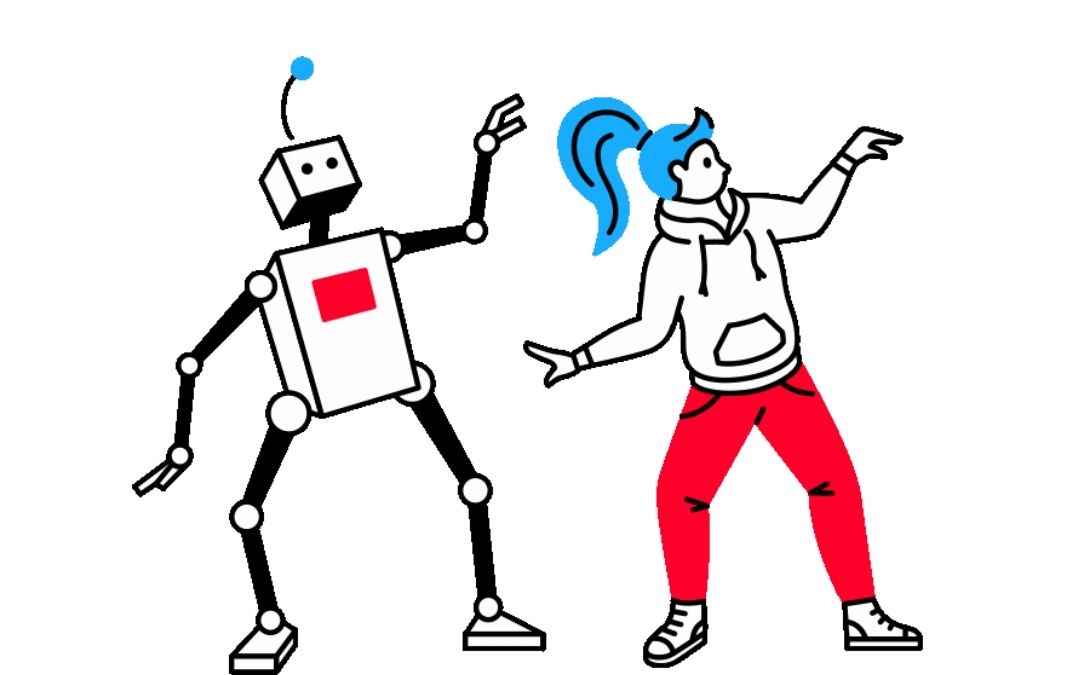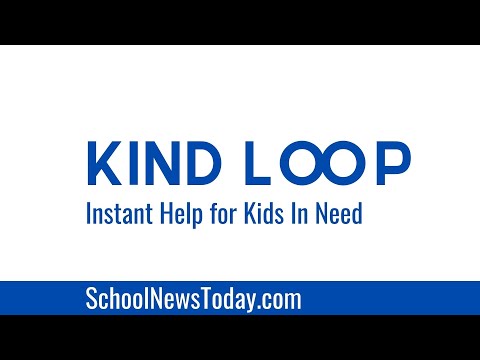Underserved, disenfranchised students have been brutally excluded from the data revolution that has transformed almost every other aspect of modern life.
Almost every tech need a teacher has can be solved with a free Google tool or a Swiss Army knife combination of existing Google products.
New Edtech products continue to launch because they offer companies a way to harvest student/teacher data and hijack eyeballs, not because they add value to the classroom.
Administrators may be able to add a line to their resumes for bringing in new tech but otherwise, there is rarely any benefit to schools.
But there is one remaining area where teachers desperately need tech help, and where the power of databases and internet tools have yet to be brought to the classroom. No, it’s not a first-person shooter game to teach kids about the Bill of Rights with ads for the NRA.
The App Teachers Need
Schools need direct access to social services for their students in one unified portal.
As it is now, teachers and administrators pick up the phone and call endless foster care admin numbers, group homes, homeless shelters, private charities, drug rehabs, food pantries, and emergency services one by one looking for resources and placements for students in need.
Teachers spend a significant amount of their time helping students navigate a system that is designed to frustrate and fail. Often teachers search for services in their free time or off hours, and frequently in situations of desperate need or danger. This work contributes to teacher burnout which in turn is contributing to the teacher shortage.
The system of services, care, and dollars available to kids are disconnected, decentralized, and disorganized.
You can easily find a rental car anywhere in the world and immediately access a wealth of information about that vehicle from its features to its cost to its safety rating. But if you want to find a bed for a student you must rely on word of mouth, outdated technology like the telephone, and random acts of kindness.
The best app for finding services, FindHelp.com, has a wealth of information. But most of the time you are directed to the landline of a shelter or food bank where you often get an answering machine. You are repeatedly prompted to print the list of resources which is impossible for most people in bad situations. It’s even hard for teachers in resource-strapped schools.
These are old-world tools in a world where we have much better technologies that could be brought to bear.
The ad-hoc nature of the social service safety net makes it vulnerable to bias. It takes a highly-motivated and dedicated advocate to find care for students, and the personal element means that all kinds of prejudice can block access to services.
Why Poor Students Are Excluded From Modern Technology
Disenfranchised students don’t have access to the care available to them, or even to their own data. The typical child in foster care bounces from place to place with no control over their own medical records or family history.
Underserved, disenfranchised students who have been placed at risk have been brutally excluded from the data revolution that has transformed almost every other aspect of modern life for a reason.
This is not a bug, but a feature of the culture of cruelty to poor children in our country.
Children without data are citizens without power. Kids who are lost in the system are much more likely to die or be trafficked. Foster kids are in a pipeline to the for-profit prison system and they are overwhelmingly more likely to end up in the lowest-paid sector of the workforce.
The lack of transparency and public data in the system is often presented as a protection for the children in its care. But, in reality, the lack of transparency allows for-profit agencies to steal from the children it is supposed to be helping. Millions of dollars disappear into the foster care system every year while children receive sub-par care and rampant abuse goes unchecked.
Social services need the kind of instant booking app with public reviews that we already have for hotel rooms, pet grooming, rideshare, houseshare, and grocery delivery.
Kind Loop The Instant Social Service App
The ideal services portal would bring the innovations of some of our most successful apps to the kids who need them most.
It would be very expensive to implement this system, hard to monetize for shareholders, and easy to corrupt for the evil purposes of data miners. But they said the same thing about Amazon and Priceline and they are doing fine.
Children in the system deserve to benefit from the technologies that make modern life easier. The fact that we have deprived them of basic data services is a symptom of both neglect and prejudice.
Fred’s University Department of Pitch Decks has produced a proposal for an app called Kind Loop that would address these issues. See the video below. If you sit next to an eccentric billionaire on a plane who is looking to redeem himself for their ill-got gains, please share it with them.
Comments Closed On This Post
**Starred Comments**
YrMathTchr
Teachers have to beg for beds for their students at emergency shelters. Students are placed in harm’s way all the time. The insider knowledge about which shelters have rats or pedophiles is passed around in private by teachers instead of being visible to all in reviews.
Ramona
When I got a tattoo of my dead sister’s name I was able to see pictures of the tattoo parlor, reviews of all of the tattoo artists on-site, and the cost itemization of all services. I was able to schedule online and give my feedback after. When my sister was placed in foster care I could not see the name of the family she was placed with, the dangerous bunk beds she had to sleep in, the criminal record of the foster father, or the amount of money the foster care system took for her care while she was virtually starved.
FredED
I actually DO want that first-person shooter game that teaches the Bill of Rights. In fact, I want any new fun games that Edtech can come up with to make my life bearable. No Google spreadsheet/calculator/slideshow will be half as fun as the for-profit games that entrepreneurs come up with.
SallySocialWorker8
I advise rich college-bound students and they have tools like The Common App that make it possible to apply to many schools at once without re-entering the same information. They have apps like Naviance that tell them exactly how many people with their grades and stats have gotten into specific colleges for the last ten years. They have detailed online information about every aspect of the colleges they visit.
But when I’m trying to help kids in the system find emergency care we are using outdated telephone directories, filling out redundant paper applications, and faxing personal information to GD knows who.
It’s a tale of two worlds with poor kids stuck in the past with no access to the basics of modern life.
Bobby9
My review of the foster system after aging out at 18:
If I could give zero stars I would. Bed bugs, physical abuse, rapey older bio kids, all my worldly goods stored in a garbage bag symbolizing my status as human trash. The food was bad and the portions were too small.
Rico
The idea that kids would be allowed to write reviews of their foster care placements is laughable. Kids are not considered people by the system. They do not have rights, even the basic rights that American consumers exercise every day in their zero-star reviews of fidget spinners. When kids try to report abuse in foster care they are punished and usually end up in an even worse placement. I guarantee you the crooked foster care industry does not want any data to escape their greedy grasp.
Ms.Green389
I thought I was signing up to be a highly-trained teacher, instead, I am an undertrained/unpaid social worker. A significant part of my time and the majority of my emotional energy is spent on trying to help disadvantaged and/or abused kids. And because I know you want to ask–NO, I do not teach in a poor district. Just your normal American school that serves as the safety net for average American poverty and we have our fair share of kids who are victims of domestic abuse.
GeogTeach
My favorite classroom assignment: Ask kids to find a free solution to school problems that new software supposedly solves. They learn more by hacking together Google tools than they are likely to learn from the next ed app. It is a free activity that empowers them instead of treating them as beta users in a game of economic data exploitation. Maybe there is an AP Computer class out there that could put together this portal and lock it down from corporate thieves.
CommieCameron
You are way underplaying the capacity for evil that a central data system could have. The very first profit point would be identifying those future lucrative prisoners and captive workers. Lots of opportunities for creepy with little chance of working for good. If we do the data collection for the prison industry we are just saving them money.
MrG2@aol.com
Hiding poor kids from the world of data and technology is part of a larger cultural devaluation of these children. It is not a coincidence that some of the most mistreated members of our society, immigrants without legal status, are referred to as the “undocumented.” To be undocumented is to be rendered invisible. If you are outside the data grid you cease to exist as a valued human.
Big data could easily take the social service system online like Uber, and it could give kids control of their data. It just doesn’t want to.
VCbro
If the lucrative foster care system and prison pipeline are any indications, creating a road to privatization and centralization of other services could be insanely profitable. Sign me up!
WaPoDad
We’ve said it before: Democracy dies in darkness.
Also Read: Letter of Resignation: Close The Schools!


